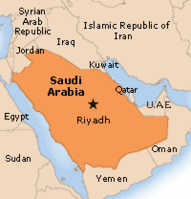Resource curse
The term 'resource curse' refers to the observation that nations with rich endowments of natural resources (oil, metals, timber) often dramatically underperform economically relative to what one would expect. Common sense and simple economics suggest that countries blessed with an abundance of natural resources should live long and prosper. Yet over many years, it has been observed that nations rich in oil, gas, or mineral resources have been disadvantaged in the drive for economic progress. In the 1950's and 1960's, concern was based upon deteriorating terms of trade between industrialized and developing countries. In the 1970's, it was driven by the impact of the oil price shocks on the oil exporters where windfall revenues seemed to introduce serious distortions to the economies. In the 1980's, the phenomenon of "Dutch Disease"—an overvaluation of the real exchange rate and the contraction of agriculture and industry —attracted attention. In the 1990's, it was the impact on government behavior—rent seeking and corruption—that dominated discussions. More recently, a revival of interest follows the World Bank's "Extractive Industry Review" and growing concern over corporate social responsibility. Existence of the "curse" is controversial in the literature and there is growing evidence that its occurrence is far from inevitable. In many countries, natural resource revenues can produce tangible benefits. Where a "curse" has occurred, the main explanation lies in the way large windfall resource revenues affect government behavior. Thus avoidance implies political reform to encourage good governance. Increasingly, analysis addresses how the various players in natural resource projects—international financial institutions, multinational corporations and non-governmental organizations (NGOs)—can assist governments at risk to create capacity to manage the problem.
Further Reading
- Auty, Richard M. The Resource Curse in Developing Countries can be Avoided.
- Sachs, Jeffrey D. & Warner, Andrew M., 1995. "Natural Resource Abundance and Economic Growth", NBER Working Papers 5398, National Bureau of Economic Research, Inc.
- Sachs, Jeffrey D. & Warner, Andrew M., 2001. "The curse of natural resources", European Economic Review, Elsevier, vol. 45(4-6), pages 827-838, May.
